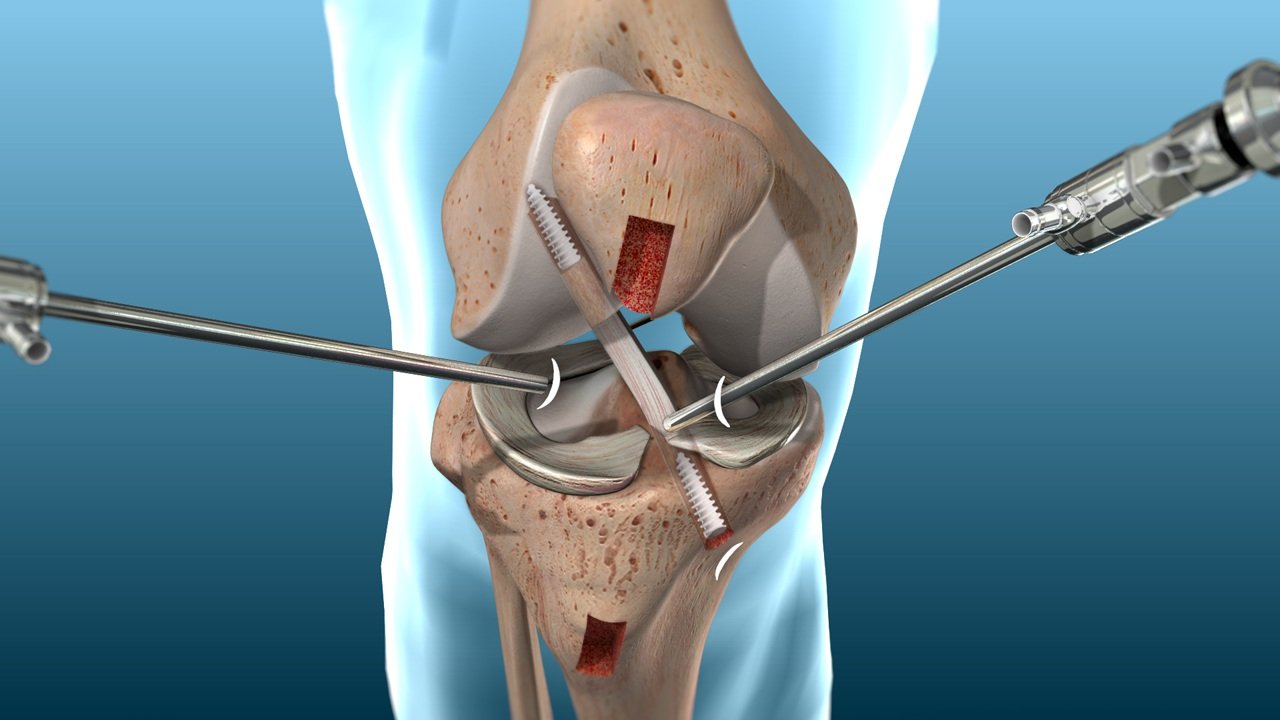
Dr. Sanjay Barik
Knee & Shoulder Surgeon
Acl Repair

What is Acl Repair
ACL reconstruction is a surgical procedure to rebuild the ligament at the center of your knee. The anterior cruciate ligament (ACL) links your shinbone (tibia) to your thighbone (femur). A tear in this ligament can cause knee instability during physical activities, particularly during side-step or crossover movements.
Types of ACL Surgery
-
-
- Autograft: This method uses a graft taken from the patient’s own body, commonly from the patellar tendon, hamstring tendons, or quadriceps tendon.
- Allograft: This method uses a graft taken from a donor. Allografts are often used in cases where multiple ligaments are injured or when previous surgeries have failed.
-
Primary ACL Repair:
-
- This less common technique involves reattaching the torn ends of the ACL if the tear is located near the ligament’s attachment to the bone and the tissue quality is good. This method is typically suitable for specific types of tears and is often performed shortly after the injury.
-
Why the Procedure is Performed
If you opt not to undergo ACL reconstruction, your knee may remain unstable, increasing the risk of a meniscus tear. ACL reconstruction is typically recommended for the following knee problems:
- Knee instability or a sensation of giving way during daily activities
- Persistent knee pain
- Difficulty returning to sports or other physical activities
- Concurrent injuries to other ligaments
- Presence of a torn meniscus
Prior to surgery, it’s important to discuss with your healthcare provider the time and commitment required for recovery. Following surgery, a comprehensive rehabilitation program spanning 4 to 6 months is essential. Your ability to return to full activity hinges on your dedication to following the program diligently.
Before the Procedure
It’s crucial to inform your healthcare provider about all medications you’re taking, including over-the-counter drugs, supplements, or herbs.
Two weeks before your surgery:
- You may need to discontinue medications that thin your blood, like aspirin, ibuprofen (Advil, Motrin), naproxen (Naprosyn, Aleve), and others.
- Consult your provider regarding which medications you should continue on the day of surgery.
- If you have underlying medical conditions like diabetes or heart disease, your surgeon may request you to visit the relevant specialist.
- Notify your provider if you’ve been consuming alcohol excessively (more than one drink per day for women or two drinks per day for men).
- If you smoke, consider quitting, as smoking can impede wound and bone healing. Your healthcare team can offer assistance if needed.
- Inform your provider about any recent illnesses, such as colds, flu, fever, or herpes outbreaks, before your surgery.
On the day of your surgery:
- You’ll typically be instructed not to consume food or drink for 6 to 12 hours before the procedure.
- Take prescribed medications with a small sip of water as instructed.
- Arrive at the hospital at the specified time provided by your healthcare team.
After the Procedure
It’s crucial to inform your healthcare provider about all medications you’re taking, including over-the-counter drugs, supplements, or herbs.
Two weeks before your surgery:
- You may need to discontinue medications that thin your blood, like aspirin, ibuprofen (Advil, Motrin), naproxen (Naprosyn, Aleve), and others.
- Consult your provider regarding which medications you should continue on the day of surgery.
- If you have underlying medical conditions like diabetes or heart disease, your surgeon may request you to visit the relevant specialist.
- Notify your provider if you’ve been consuming alcohol excessively (more than one drink per day for women or two drinks per day for men).
- If you smoke, consider quitting, as smoking can impede wound and bone healing. Your healthcare team can offer assistance if needed.
- Inform your provider about any recent illnesses, such as colds, flu, fever, or herpes outbreaks, before your surgery.
On the day of your surgery:
- You’ll typically be instructed not to consume food or drink for 6 to 12 hours before the procedure.
- Take prescribed medications with a small sip of water as instructed.
- Arrive at the hospital at the specified time provided by your healthcare team.


